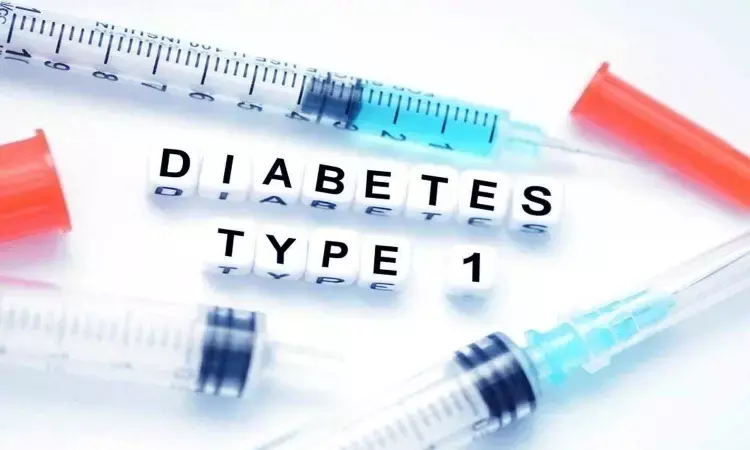- Home
- Medical news & Guidelines
- Anesthesiology
- Cardiology and CTVS
- Critical Care
- Dentistry
- Dermatology
- Diabetes and Endocrinology
- ENT
- Gastroenterology
- Medicine
- Nephrology
- Neurology
- Obstretics-Gynaecology
- Oncology
- Ophthalmology
- Orthopaedics
- Pediatrics-Neonatology
- Psychiatry
- Pulmonology
- Radiology
- Surgery
- Urology
- Laboratory Medicine
- Diet
- Nursing
- Paramedical
- Physiotherapy
- Health news
- Fact Check
- Bone Health Fact Check
- Brain Health Fact Check
- Cancer Related Fact Check
- Child Care Fact Check
- Dental and oral health fact check
- Diabetes and metabolic health fact check
- Diet and Nutrition Fact Check
- Eye and ENT Care Fact Check
- Fitness fact check
- Gut health fact check
- Heart health fact check
- Kidney health fact check
- Medical education fact check
- Men's health fact check
- Respiratory fact check
- Skin and hair care fact check
- Vaccine and Immunization fact check
- Women's health fact check
- AYUSH
- State News
- Andaman and Nicobar Islands
- Andhra Pradesh
- Arunachal Pradesh
- Assam
- Bihar
- Chandigarh
- Chattisgarh
- Dadra and Nagar Haveli
- Daman and Diu
- Delhi
- Goa
- Gujarat
- Haryana
- Himachal Pradesh
- Jammu & Kashmir
- Jharkhand
- Karnataka
- Kerala
- Ladakh
- Lakshadweep
- Madhya Pradesh
- Maharashtra
- Manipur
- Meghalaya
- Mizoram
- Nagaland
- Odisha
- Puducherry
- Punjab
- Rajasthan
- Sikkim
- Tamil Nadu
- Telangana
- Tripura
- Uttar Pradesh
- Uttrakhand
- West Bengal
- Medical Education
- Industry
Golimumab improves insulin production and blood sugar control in T1D: NEJM

Delhi: Golimumab results in better endogenous insulin production in children and young adults with newly diagnosed overt (stage 3) type 1 diabetes, suggests a recent study in the New England Journal of Medicine.
Type 1 diabetes is an autoimmune disease characterized by progressive loss of pancreatic beta cells that leads to lifelong dependence on insulin therapy. Golimumab is a human monoclonal antibody that is specific for tumor necrosis factor α -- already approved for the treatment of autoimmune conditions in adults and children. However it is unknown if golimumab could preserve beta-cell function in youth with newly diagnosed overt (stage 3) type 1 diabetes. To determine the same, the researchers conducted a phase 2, multicenter, placebo-controlled, double-blind, parallel-group trial.
The trial included a total of 84 children and young adults (age range, 6 to 21 years) with newly diagnosed overt type 1 diabetes. They were randomized in the ratio 2:1 to receive subcutaneous golimumab (n=56) or placebo (n=28) for 52 weeks.
The primary end point was endogenous insulin production, as assessed according to the area under the concentration–time curve for C-peptide level in response to a 4-hour mixed-meal tolerance test (4-hour C-peptide AUC) at week 52.
Key findings of the study include:
- The mean (±SD) 4-hour C-peptide AUC at week 52 differed significantly between the golimumab group and the placebo group (0.64±0.42 pmol per milliliter vs. 0.43±0.39 pmol per milliliter).
- A treat-to-target approach led to good glycemic control in both groups, and there was no significant difference between the groups in glycated hemoglobin level.
- Insulin use was lower with golimumab than with placebo.
- A partial-remission response (defined as an insulin dose–adjusted glycated hemoglobin level score [calculated as the glycated hemoglobin level plus 4 times the insulin dose] of ≤9) was observed in 43% of participants in the golimumab group and in 7% of those in the placebo group.
- The mean number of hypoglycemic events did not differ between the trial groups.
- Hypoglycemic events that were recorded as adverse events at the discretion of investigators were reported in 23% of patients in the golimumab group and in 7% of those in the placebo group.
- Antibodies to golimumab were detected in 30 participants who received the drug; 29 had antibody titers lower than 1:1000, of whom 12 had positive results for neutralizing antibodies.
"Our findings show that among children and young adults with newly diagnosed overt type 1 diabetes, golimumab resulted in better endogenous insulin production and less exogenous insulin use than placebo," concluded the authors.
Dr Kamal Kant Kohli-MBBS, DTCD- a chest specialist with more than 30 years of practice and a flair for writing clinical articles, Dr Kamal Kant Kohli joined Medical Dialogues as a Chief Editor of Medical News. Besides writing articles, as an editor, he proofreads and verifies all the medical content published on Medical Dialogues including those coming from journals, studies,medical conferences,guidelines etc. Email: drkohli@medicaldialogues.in. Contact no. 011-43720751


